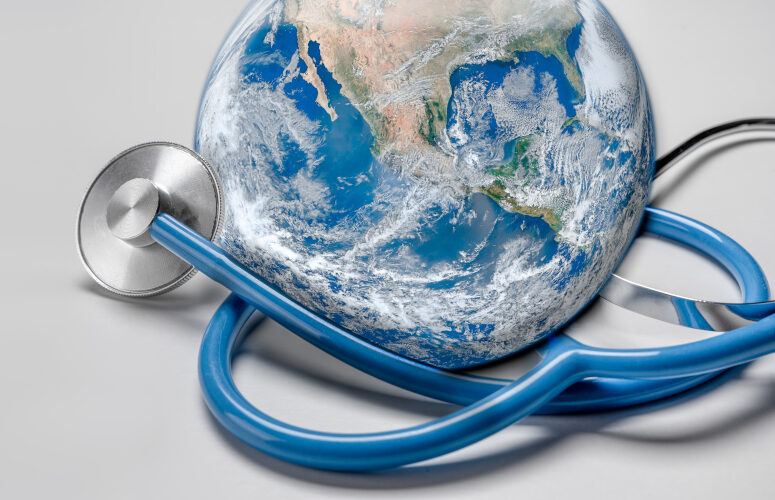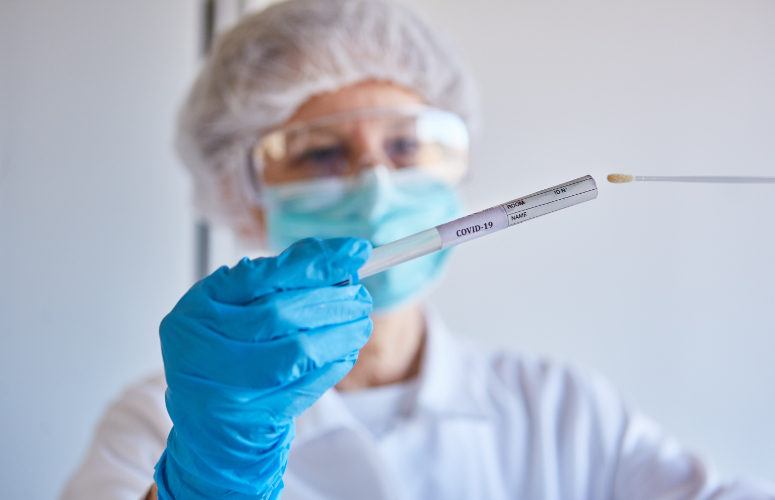
Atlantic Health System Pledge to Decarbonize Healthcare Sector
On Nov 11, 2022Atlantic Health System was celebrated by the U.S. Department of Health and Human Services (HHS) at the 2022 United Nations Climate Change Conference (COP27) yesterday for pledging ongoing action to decarbonize the healthcare sector and make healthcare facilities more resilient to the effects of climate change.
The Morristown-based health system has formally committed to pursuing the Biden administration’s climate goal of reducing emissions by 50% by 2030 and achieving net zero emissions by 2050. In fact, the organization is already building on its success in implementing renewable, sustainable energy as a reliable power source for its hospitals.
A September 2021 consensus statement from more than 200 medical journals named climate change the number one threat to global public health. Additionally, the healthcare sector contributes to climate change, accounting for approximately 8.5% of U.S. domestic emissions.
The HHS Office of Climate Change and Health Equity (OCCHE), part of the Office of the Assistant Secretary for Health, developed the White House/HHS Health Sector Climate Pledge to help focus industry response to climate challenges. In addition to reducing their carbon footprint, signatories also commit to producing detailed plans to prepare their facilities for both chronic and acute catastrophic climate impacts.
One hundred two prominent health companies in the U.S. have signed the White House/HHS Health Sector Climate Pledge, including organizations representing 837 hospitals as well as leading health centers, suppliers, insurance companies, group purchasing organizations, pharmaceutical companies, and more. Federal systems like the Indian Health Service (IHS), Veterans Health Administration (VHA), and Military Health System (MHS) are working together to meet similar goals to those these private sector organizations have embraced. Combined, this means that over 1,080 federal and private sector hospitals have made such commitments, together representing over 15% of U.S. hospitals.
Atlantic Health System’s two teaching hospitals, Morristown Medical Center and Overlook Medical Center, are currently powered by Combined Heating and Power plants (CHP) – at Morristown, a co-generation power plant, and a tri-gen power plant at Overlook. The co-gen plant uses a natural gas-powered turbine, or jet engine, while the tri-gen uses reciprocating engines – to generate electricity. The by-product of the engines is heat, which is then converted to steam, which is used by the hospitals’ boilers for heating and hot water throughout the facility.
In the winter, when demand is lower, the plants can meet nearly all of the hospitals’ electricity needs. In the summer, when heating is not required, the boilers can continue creating hot water for sterilization needs. Each plant provides greener electricity by taking an equivalent of 2,640 gasoline-powered cars off the road each year.
Working in tandem with the hospital’s emergency generators, the power plants also offer the added protection against potential electrical outages from public energy. This was never more apparent than in 2012 – as Superstorm Sandy caused sweeping public power outages throughout the region, Overlook’s tri-gen plant was able to not only keep the hospital completely powered, but also allowed members of the community to recharge their cell phones in the hospital lobby.
In addition to the CHPs, Atlantic Health System is working to install solar panels at each of its medical centers, as well as its Rockaway Pavilion, that will generate a portion of each facility’s electricity or power a solar thermal hot water heating system.
“As healthcare leaders, we recognize the impact of our operations and sourcing practices on the environment and the health of our communities,” said Brian Gragnolati, president and CEO of Atlantic Health System. “We’ve proven that by operating more sustainably, we can improve the well-being of our patients, team and neighbors while delivering care more efficiently and independently.”
To access more business news, visit NJB News Now.
Related Articles:





